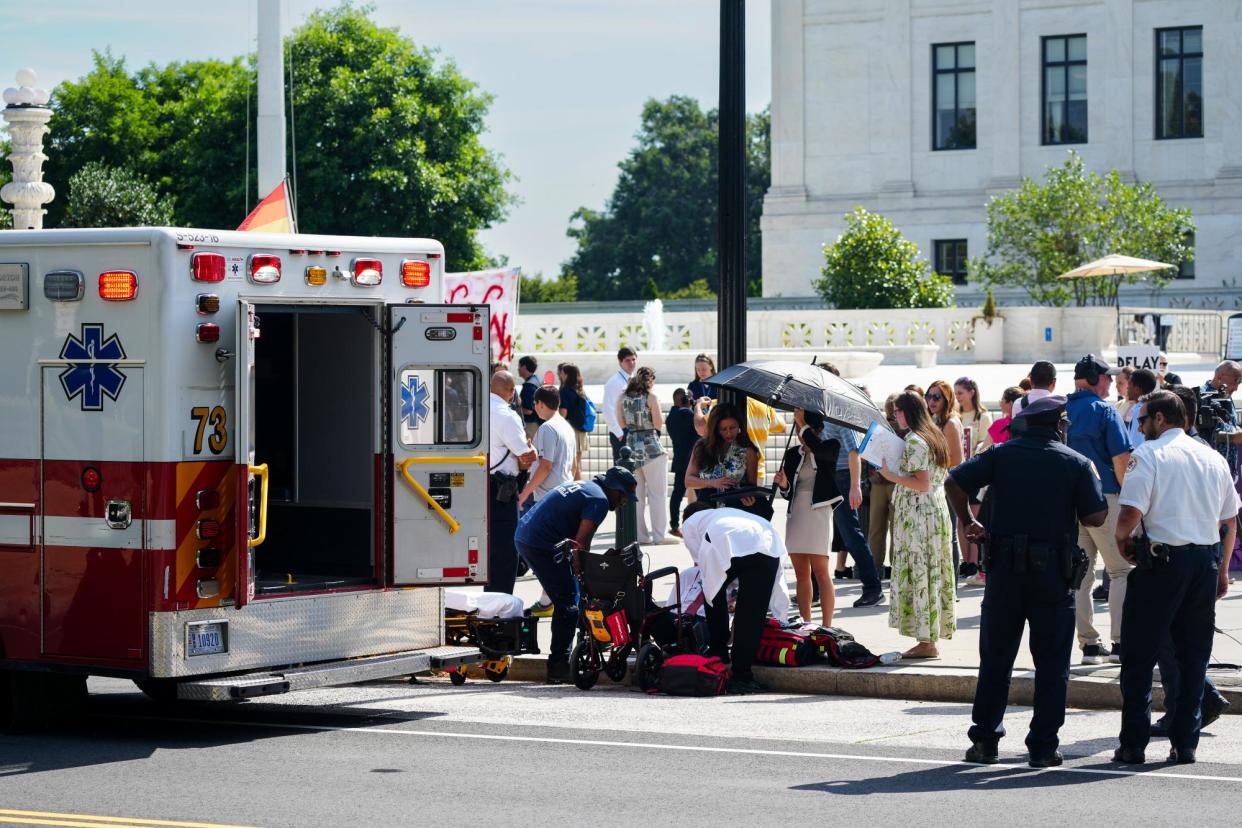Heatwave continues to roast 65m people in US midwest and north-east

About 65 million people were under heat alerts in the north-eastern and midwest states on Friday, as an early season heatwave in the US continued to roast the region.
Record temperatures were set in some areas, with heat indexes that combine temperature and humidity hitting 100F and 110F. Calendar-day highs were broken across Maine, New Hampshire and Pennsylvania.
The National Weather Service warned that people without reliable air conditioning would be most affected. Across the Ohio River valley, the heat-risk index was at level 4 – labeled “extreme” for the next two days.
Related: What is a heat dome and how is it contributing to the heatwave in the US
“This rare and/or long-duration extreme heat with little to no overnight relief affects anyone without effective cooling and/or adequate hydration,” the agency said, adding that it was likely to affect “most health systems, heat-sensitive industries and infrastructure”.
With temperatures only slightly dropping at night, the national forecaster advised people to “drink plenty of fluids, stay in an air-conditioned room, stay out of the sun, and check up on relatives and neighbors”.
The sudden intensity of summer heat in the region is attributed the northerly movement of a high-pressure heat dome that had settled over Mexico and the US south-west in March.
It slowly traversed north, breaking temperature records as it went. The climate group World Weather Attribution released a report on Thursday saying that the southern heatwave in late May was 35 times more likely to have occurred because of climate change, and 2.5F hotter.
In Texas, the governor, Greg Abbott, issued a disaster declaration for 51 Texas counties after Tropical Storm Alberto deluged parts of the state. New Mexico has also requested federal assistance after wildfires forced the evacuation of a town in the southern part of the state.
But forecasters have predicted that colder air with less humidity will move across the northern plains and upper midwest over the weekend and the north-east soon after.
Still, it will be uncomfortable in some regions until then. In the mid-Atlantic states, temperatures are forecast to increase into the 100s “with record-tying/breaking temperatures possible”.
The heat has caused infrastructure problems. In New York, hundreds of commuters were stranded on trains out of Penn Station when a power outage and a brush fire in New Jersey’s Secaucus marshland area disrupted service.
US train operator Amtrak said its trains would have to run at slower speeds because of the heat.

 Yahoo News
Yahoo News 
